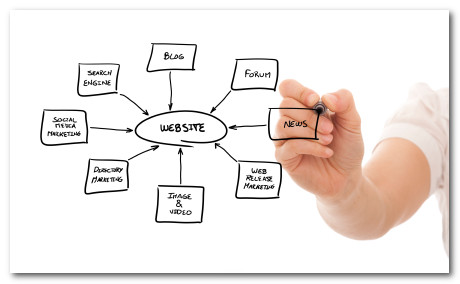
PPC used to pretty simple.
You just signed up, selected a keyword terms – probably used your SEO keyword list – put in a few bids, and hit go. Some tweaking here, some tweaking there. Life was good.
These days, with quality scores, ruthless levels of competition (including Google competing against the advertisers), a wealth of segmentation options, and complex analysis and reporting, PPC has become more demanding, necessitating the need for more in depth training.
- Should you bid on your brand? What match type should you use if you do?
- Do AdWords Site Links increase yield? Or do they charge you for what you were already getting free?
- Have you tested modified broad match yet?
- Have you seen Google’s new enhanced CPC bidding option?
When does it make sense to use any of those options?
Before you get down to detail, there are some higher level skills you should read up on, too. The fundamentals of PPC are similar to established channels. Because these channels have been around a long time, they’ve build up a lot of time-tested theory. You can apply much of this theory to PPC, without having to repeat the same mistakes.
1. Study Direct Marketing
Direct marketing is a form of advertising that communicates with the consumer using advertising techniques such as fliers, catalog distribution, promotional letters, and street advertising. The techniques are very similar to PPC. Direct marketers target a group of people, seek to convince them using well-crafted written/pictorial advertising, and try to illicit a response and/or purchase.
The great thing about direct marketing theory is that there is so much of it. Direct marketing has been going since the 1860s. In order to be profitable, direct marketing had to ruthlessly test what worked, and what didn’t, else direct marketers could blow through a lot of money in print and distribution costs.
There are a lot of great books on the craft of direct marketing theory, but one good place to start is Tested Advertising Methods, by John Caples. Whilst the examples offered by the book are getting a bit long in the tooth, the psychology underlying the approach – how to appeal to your market segment using effective copy and constant testing – is sound.
2. Understand Your Customer
PPC is a sales channel.
A lot of sales theory is directly applicable to PPC, particularly in terms of identifying your customer, determining what they want, and making an offer at a price they want to pay.
Sales relies on three aspects:
Quality Prospects – you need to target the people who are prepared to buy.
Your keyword selection process should involve weeding out keyword terms that sound like they are relevant, but do not convert.
For example, someone looking for “[keyword] coupon” has already made a decision to buy, they’re just looking for a discount before they do.
The person who searches on the keyword, but uses no qualifier, may be much further back in the sales funnel. They require a very different pitch to get them to the point where they are ready to give over their credit card details.
Sales theory, particularly relating to sales funnels, will help you pitch correctly.
Quality Presentation – you need to make a persuasive case. This comes down to your copy and landing page style. Are you responding to peoples needs, and are you doing so in a credible way?
Numbers – you need to get infront of as many people as possible, once you’ve selected quality prospects and got a quality presentation. Scale is near infinite in PPC, given the range of keywords and channels.
3. Understand Your Strategic Goals
What do you want your PPC campaign to achieve?
Whilst the obvious answer is “more sales!”, there are other ojectives you may wish to consider. You may want to increase market share, keep expenses under control, increase your profitability, increase your profit margins, or a mix of the above. Starting a PPC campaign without clear strategic goals makes it difficult to measure your achievement in a broader sense.
Another way of clarifying this aspect is to ask yourself “what problem am I trying to solve?” Are you trying to get more/better…..what? Why use PPC at all? Would another channel solve those goals more easily? Where does PPC fit into the overall business strategy?
If you have a regularly updated business case, it makes strategic planning easier than if you just wing it. A business case doesn’t need to be complicated. It can occupy a single page.
Be clear about where PPC fits into the broader picture.



